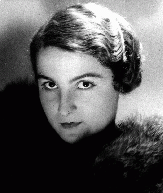You searched for: %E6%8B%8D%E5%8D%96%E7%B3%BB%E7%BB%9F%E6%BA%90%E7%A0%81%E5%BF%AB%E9%80%9F%E6%90%AD%E5%BB%BA%E3%80%90TG%EF%BF%BD%EF%BF%BD%EF%BF%BD%EF%BF%BD%EF%BF%BD%EF%BF%BD%EF%BF%BD%EF%BF%BD%EF%BF%BD%40EK7676%E3%80%91%E5%B9%B3%E5%8F%B0%E5%8C%85%E7%BD%91%E6%90%AD%E5%BB%BA%E6%8B%8D%E5%8D%96%E7%B3%BB%E7%BB%9F%E6%BA%90%E7%A0%81%E5%BF%AB%E9%80%9F%E6%90%AD%E5%BB%BA%E3%80%90TG%EF%BF%BD%EF%BF%BD%EF%BF%BD%EF%BF%BD%EF%BF%BD%EF%BF%BD%EF%BF%BD%EF%BF%BD%EF%BF%BD%40EK7676%E3%80%91%E5%B9%B3%E5%8F%B0%E5%8C%85%E7%BD%91%E6%90%AD%E5%BB%BA7aIddvSLBT
<< Previous | Displaying results 126-150 of 209 for "%E6%8B%8D%E5%8D%96%E7%B3%BB%E7%BB%9F%E6%BA%90%E7%A0%81%E5%BF%AB%E9%80%9F%E6%90%AD%E5%BB%BA%E3%80%90TG%EF%BF%BD%EF%BF%BD%EF%BF%BD%EF%BF%BD%EF%BF%BD%EF%BF%BD%EF%BF%BD%EF%BF%BD%EF%BF%BD%40EK7676%E3%80%91%E5%B9%B3%E5%8F%B0%E5%8C%85%E7%BD%91%E6%90%AD%E5%BB%BA%E6%8B%8D%E5%8D%96%E7%B3%BB%E7%BB%9F%E6%BA%90%E7%A0%81%E5%BF%AB%E9%80%9F%E6%90%AD%E5%BB%BA%E3%80%90TG%EF%BF%BD%EF%BF%BD%EF%BF%BD%EF%BF%BD%EF%BF%BD%EF%BF%BD%EF%BF%BD%EF%BF%BD%EF%BF%BD%40EK7676%E3%80%91%E5%B9%B3%E5%8F%B0%E5%8C%85%E7%BD%91%E6%90%AD%E5%BB%BA7aIddvSLBT" | Next >>
-
Japan attacks Pearl Harbor
FilmWhile Japanese diplomats in Washington, DC, negotiated with Secretary of State Cordell Hull, Japanese planes bombed the naval base at Pearl Harbor. American outrage at the surprise attack overcame isolationist sentiment and the United States declared war on Japan the following day.
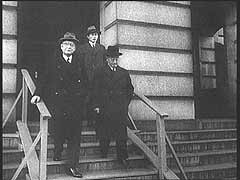
-
US Quakers aid children in defeated France
FilmDuring World War II , the American Friends Service Committee, a Quaker relief organization, provided food, shelter, and other aid to thousands of Jewish refugees—especially Jewish children—in France. The Quakers were active throughout France, even in areas occupied by German forces. In this footage, Quaker relief workers feed children at one of the Quaker-established schools in Marseille in the unoccupied southern zone of France.
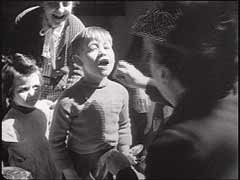
-
Theresienstadt: Establishment
ArticleLearn about the establishment of the Theresienstadt camp/ghetto, which served multiple purposes from 1941-45 and had an important propaganda function for the Germans.
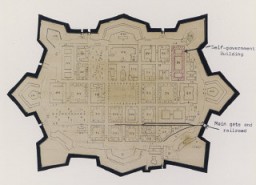
-
The Survivors
ArticleSurvivors faced huge obstacles in rebuilding their lives after the devastation of the Holocaust years. Learn about some of the challenges they faced.
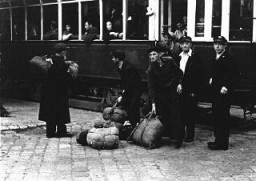
-
Theresienstadt: Cultural Life
ArticleDespite terrible living conditions and the constant threat of deportation, there was a highly developed cultural life in the Theresienstadt camp-ghetto. Learn more.
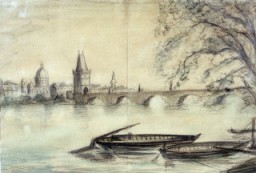
-
The Doctors Trial: The Medical Case of the Subsequent Nuremberg Proceedings
ArticleThe Medical Case, or Doctors Trial, was Case #1 of 12 Subsequent Nuremberg Proceedings against leading German industrialists, military figures, SS perpetrators, and others.
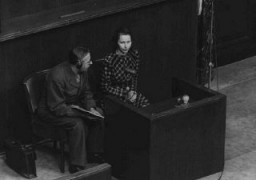
-
Forced Labor: An Overview
ArticleForced labor played a crucial role in the wartime German economy. Many forced laborers died as the result of brutal treatment, disease, and starvation.
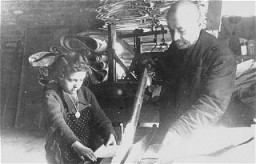
-
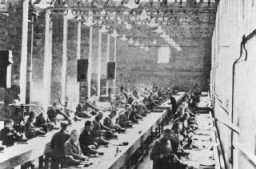
-
William Denson describes some of the emotional difficulties for witnesses in recalling their experiences
Oral HistoryWilliam Denson graduated from the US Military Academy at West Point in 1934 and attended Harvard Law School. He returned to West Point to teach law from 1942 until 1945. In January 1945, Denson accepted the position of Judge Advocate General (JAG) in Europe and was assigned to US Third Army headquarters in Germany. He took part in more than 90 trials against Germans who had committed atrocities against downed American pilots. In August 1945, Denson became chief prosecutor for the US government at the…
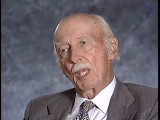
-
John Demjanjuk: Prosecution of A Nazi Collaborator
ArticleJohn Demjanjuk, initially convicted as “Ivan the Terrible,” was tried for war crimes committed as a collaborator of the Nazi regime during the Holocaust.
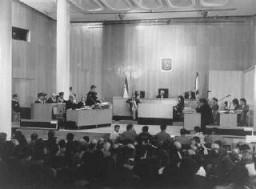
-
The German Military and the Holocaust
ArticleThe German military played a vital role in the consolidation of Nazi power and persecution and mass murder of Jews and other groups. Learn more
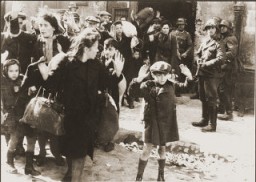
-
Treblinka
ArticleTreblinka was one of three killing centers in Operation Reinhard, the SS plan to murder almost two million Jews living in the German-administered territory of occupied Poland.
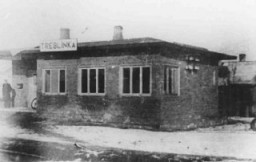
-
Budy: An Auschwitz Subcamp
ArticleBudy was one of more than 40 subcamps that the SS administered as part of the Auschwitz camp complex. Learn more.
-
Wilek (William) Loew describes forced labor in Lvov
Oral HistoryWilek was the son of Jewish parents living in the southeastern Polish town of Lvov. His family owned and operated a winery that had been in family hands since 1870. Wilek's father died of a heart attack in 1929. Wilek entered secondary school in 1939. Soon after he began school, World War II began with the German invasion of Poland. Lvov was in the part of eastern Poland annexed by the Soviet Union. Although the Soviets took over Wilek's home and the family business, Wilek was able to continue his…
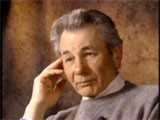
-
Hajj Amin al-Husayni: Arab Nationalist and Muslim Leader
ArticleHajj Amin al-Husayni claimed to speak for the Arab nation and the Muslim world and sought an alliance with the Axis powers during WWII. Learn more about his actions
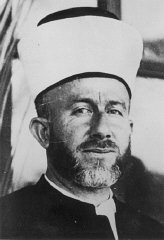
-
Hodonín U Kunštátu (Hodonín bei Kunstadt) (Roma camp)
ArticleIn March 1942, the Hodonin camp was classified as a camp for Roma. It was a transfer station during deportation to Auschwitz-Birkenau. Learn about the camp and its history.
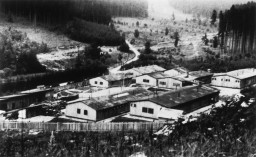
-
Tuvia Bielski
ArticleRead the Jewish Partisan Educational Foundation's short biography of Tuvia Bielski.
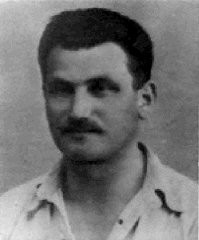
-
Chaia Gurvitz
ID CardFrom a Jewish family, Chaia lived outside Kovno, a city with a large Jewish population that was renowned for its Hebrew school system. Chaia ran a grocery store with her husband, a retired shoemaker, and their daughter Yenta. 1933-39: Chaia is expecting her daughter Feiga, Feiga's husband, Josef, and her grandson, Abraham, for dinner. Feiga works so hard all week in her beauty shop, Chaia is glad she can help out by preparing the big Sunday meal. She has baked a special cake for Abe. Chaia hopes the…
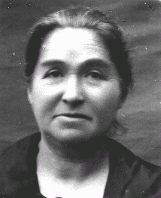
-
Feiga Malnik
ID CardRaised in a Jewish family, Feiga lived with her husband, Josef, in Kovno, a city with a large Jewish community of 38,000. Kovno was situated at the confluence of two rivers, and with its opera company, chic stores and lively nightclubs, it was often called "Little Paris." Feiga was a beautician and Josef was a barber, and together they ran a shop in downtown Kovno. 1933-39: Every day Josef and Feiga walk to their shop, which is near their house. It's hard work, being a beautician--Feiga is on her feet…
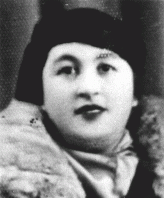
-
Josef Malnik
ID CardRaised in a Jewish family, Josef lived with his wife, Feiga, in Kovno, a cosmopolitan city that was picturesquely situated at the juncture of two rivers and was known as the "Little Paris." Josef was a barber, his wife was a beautician, and together they ran a shop in downtown Kovno. 1933-39: Every day Josef and Feiga walk to their shop which is not far from their house. It's hard work being a barber--Josef is on his feet most of the day, seven days a week including a couple of hours on Sunday. He has…
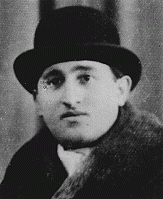
-
Personal Stories: Jewish Partisans
ArticleBrowse a series of short biographies from the Jewish Partisan Educational Foundation.
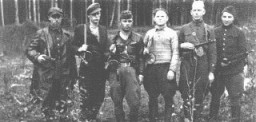
-
Lea Ofner-Szemere
ID CardLea was born in the city of Sombor in northeastern Yugoslavia. When she was 3 years old, her parents divorced and she moved to Vienna with her mother, who taught English and French to Austrian children. Lea enjoyed living in Vienna as a child. 1933-39: Lea returned to Sombor almost every year to visit her mother's relatives. There, she became reacquainted with her younger half-sister, Julia, and her older half-brother, Francis, and would miss them when she returned to Vienna. In 1938, the Germans annexed…
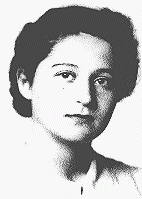
-
Szlamach Radoszynski
ID CardSzlamach was one of six children born to Yiddish-speaking, religious Jewish parents. Szlamach's father was a peddler, and the Radoszynski family lived in a modest apartment in Warsaw's Praga section on the east bank of the Vistula River. After completing his schooling at the age of 16, Szlamach apprenticed to become a furrier. 1933-39: During the 1930s Szlamach owned a fur business. Despite the Depression, he was hoping the economy would turn around so that he could make enough money to move into his own…
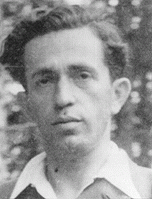
-
Isachar Herszenhorn (Irving Horn)
ID CardIsachar was born to a Jewish family in the Polish city of Radom, approximately 75 miles south of Warsaw. The city was the center of Poland's leather-tanning industry. Isachar's father worked as a salesman for a nearby tanning factory. His father was a successful salesman and the family lived comfortably. 1933-39: During registration for Isachar's first-grade class in 1934, a Jewish boy was pushed down the stairs. When his mother confronted the principal about the incident, all he said was that the boy had…
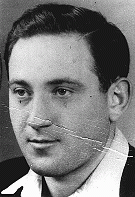
-
Laura Litwak
ID CardLaura was the second of five children born to religious Jewish parents in the industrial city of Lvov. She was often called affectionately by her nickname, Lorka. Coming from an educated family living in a multi-ethnic part of Poland, she grew up speaking Polish, Russian, German and Yiddish. As a young woman, she earned a humanities degree from St. Nicholas University in Lvov. 1933-39: In April 1935 Laura became Mrs. Daniel Schwarzwald. Her husband was a successful lumber exporter, and they lived in a…
